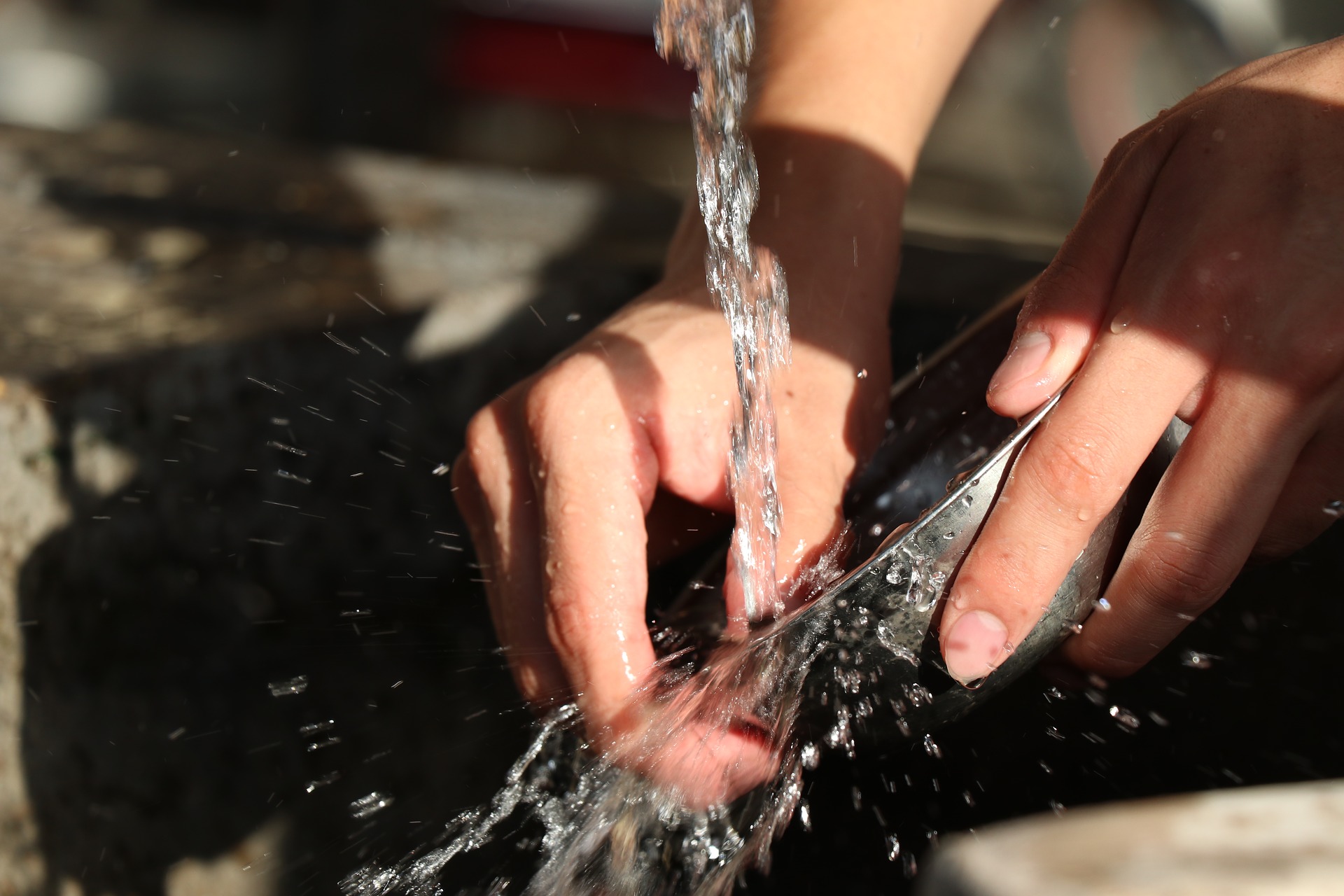The Backstory
I thought I knew how to wash a pan.
Armed with a scrub brush, Mrs. Meyer’s Lemon Verbena Aromatherapy Dish Soap, and a little elbow grease, there wasn’t a stain, streak, or amount of grime that stood a chance against me. If there happened to be a stubborn enough pan that I couldn’t overcome, it was safe to assume that the pan or dish was beyond cleaning and needed to be replaced.
I met such an adversary last weekend. Baked-on grease that wouldn’t budge despite my best efforts, tricks, and tools. I sighed and admitted defeat. I told my wife Allison that the pan was ruined beyond repair and needed to be replaced.
Allison had a different idea.
“I bet if you scrubbed it harder and really cleaned it, it would come out,” she said.
Confident in my abilities, I retorted with a clever, “No, it won’t.” I had tried everything. Eager to defend my position, I continued to explain that I had been scrubbing this thing for a while with no progress. If she had only seen how hard and long I had been working at it, she would understand that there was no way to get it any cleaner. But with frugality at the center of her motivation, and perhaps a dash of stubbornness, Allison continued to insist that the pan could be resurrected.
The Challenge
This back-and-forth continued until we reached a breaking point. With both of our tempers elevated, Allison brought out the big guns and hit me with two words to display her confidence—
“Wanna bet?”
Unwilling to back down, I took the bet and challenged her to try, confident she’d fail. Allison declared that she’d use baking soda and salt and she’d emerge the winner. She started patiently chipping away at the layers of grime with the concentration and patience of an archeologist digging for fossils. Much to my dismay, Allison slowly restored that pan to its former glory. She grinned and held it up proudly and I begrudgingly admitted— she had won.
The Lesson
As my surprise and fury subsided into defeat, I reflected on how we had gotten into this silly competition in the first place.
Up to my elbows in dirty dishwater, I had orchestrated a win-lose situation. I had stubbornly declared my righteousness: there were no other solutions to the problem I identified. This left no room for my wise wife to weigh in with her expertise, and it put her on the defensive. How different could this scenario have been if I had approached her with humility and curiosity—
“Hey Babe, no matter how much I scrub this pan, I just can’t get it any cleaner. Any ideas?”
This would have welcomed an opportunity to collaborate, I could have learned a new skill and maybe could have even grown closer in our relationship. If I had started with getting curious, I would have prevented the eventuality of getting furious.
To be curious, you must be humble. I could have admitted that I am not the lone dish-washing expert in our household. With that humility, I would have been open to incorporating the ideas of someone who may have more experience or a better understanding of that specific subject matter.
C.S. Lewis famously said, “Humility isn’t thinking less of yourself; it is thinking of yourself less.” In this context, the quote could read “Humility isn’t believing you know nothing about pan cleaning; it’s believing that other people might know more about pan cleaning than you do.”
Get Curious, Not Furious
We can all learn something from the great Allison-and-Jared-Dishpan-Debate. Here are three action steps for approaching problems with humility and seeking to Get Curious, Not Furious.
- Seek first to understand and then to be understood. Stephen Covey, the author of “The 7 Habits of Highly Effective People” teaches this principle. This approach allows you to humbly listen with the intent to understand—not just to respond. It requires a posture of humility because it forces you to put someone else before yourself.
- Ask questions. If you find that your instinct is to talk or assert an opinion first, try being the first person to ask a question. This requires that you listen to the response.
- Desire feedback. Approach with a willingness and intentional desire to know the other person’s ideas and perspective. Ask for feedback on your approach, ideas, and solutions, and incorporate the ideas of others.
True knowledge exists in knowing that you know nothing. -Socrates
These steps take time, intention, and practice to develop into habits. Growing in humility and developing a posture of curiosity will be a life-long journey for me. It might feel daunting, but it also is hopeful! Like the Socrates quote above, there is humility and relief in releasing the self-imposed, unrealistic expectation and pressure to know everything.
Next time you catch yourself moving away from humility and curiosity, remember the lesson from the Dishpan Debate and follow these steps to help you Get Curious, Not Furious!



